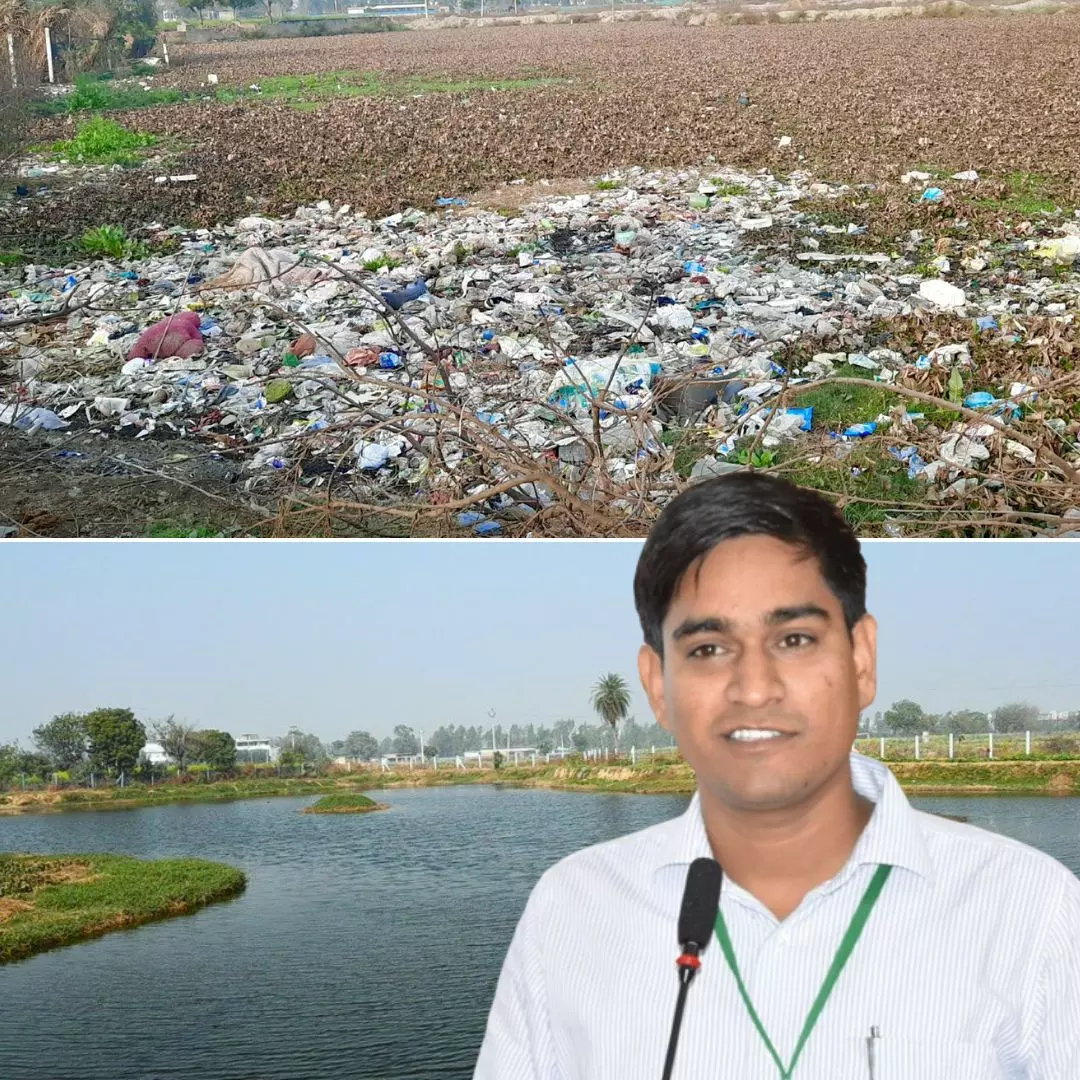The rate at which water bodies across India are depleting is alarming, as several forms of life depend on lakes and wetlands. The water bodies help recharge the water table, support livelihood and fulfill living beings’ requirements. In the coming times, it’s only expected to get worse.
The financial hub, Bengaluru in Karnataka, is the first city in India to run out of groundwater. Similar situations are in other cities, posing a danger to human life. In the National Capital Region (NCR), most of the Greater Noida areas have been marked as ‘critical’ for groundwater.
The Uttar Pradesh groundwater department report revealed that water table depletion has happened by over 6 meters between 2016 and 2020, sliding from 6.66 meters to 12.75 meters. Several organisations and environmentalists have come forward to save the remaining water bodies, noting their importance in making up the ecosystem.
Among people working towards the cause, Ramveer Tanwar has come under the spotlight for his numerous initiatives. A native of Greater Noida, Tanwar has always been on his feet regarding safeguarding the water bodies.
Know More About Ramveer Tanvar
Due to his efforts, he is widely called the ‘Pondman of India.’ An engineer by qualification, he grew up in a family of farmers. The youngest of five siblings, he attended a private college to complete the engineering course. After 2014, he secured a full-time job in a private company that fetched him a lucrative salary.
Growing up in between farm lands and water bodies, he had a special affection towards the same since childhood. As an engineering student, he witnessed water bodies fading in front of his eyes. In 2016, he left his well-settled job to follow his passion and became a conservationist.
He worked across Uttar Pradesh, Madhya Pradesh, Delhi, and Uttarakhand to revive the dying water bodies. He learned that restoring water bodies in different areas of India requires a different approach. He found that many water bodies were filled with garbage, many were polluted with other materials, and some were left with no water.
He highlighted that the restoration process of the water bodies takes around two to six months, depending upon the situation. He has also collaborated with several organisations and state governments to achieve the milestone in the field of conservation.
Also Read: Time To Care For Elderly! Know The Reason Behind Rising Number Of Old-Age Homes In India
https://thelogicalindian.com/h-upload/2023/01/30/500x300_229267-untitled-design-11.webp
Trending
2023-02-21 12:37:45.0
Reviving Water Bodies! Meet India’s Pond Man, Who Left His Engineering Job To Transform Nature













